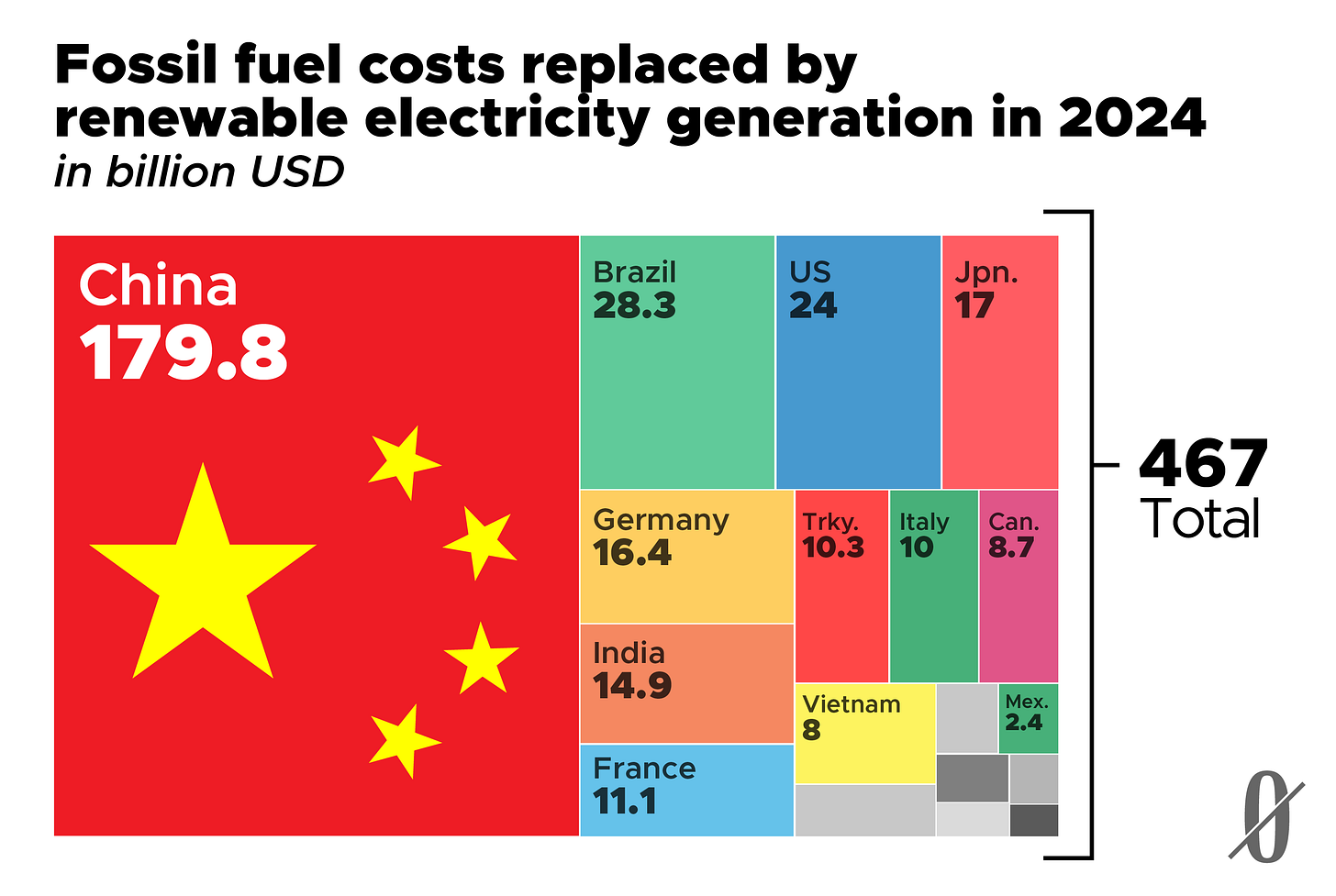Fear Grips the West
Plus: Anthropic bends the knee, teens embrace AI companions, Trump’s diplomatic own goals, and more!
—Fearing a Russian attack, German officials plan to build enough bomb shelters to protect 1 million people by next year, the Wall Street Journal reports. The government’s newfound security concerns, largely a product of the Ukraine war, have invigorated Germany’s military tech industry, which is developing some outside-the-box armaments: One German start-up says it can equip cockroaches with electronic “backpacks” and cameras that turn the bugs into remote-control surveillance assets. These “bio-robots,” said the CEO of Swarm Biotactics, “are equipped with neural stimulation, sensors, and secure communication modules” and “can be steered individually or operate autonomously in swarms.”
—Fearing foreign sabotage of America’s food supply, the US Department of Agriculture fired 70 researchers who are citizens of “countries of concern,” including China, Russia, North Korea, and Iran. The scientists, most of whom are Chinese and all of whom had passed security clearance, worked at the USDA’s internal think tank. The firings, which come amid a government-wide hiring freeze, could hamper research aimed at helping farmers fight pests and deal with climate change, according to the union that represents USDA researchers.
—Fearing the influence of China’s market clout on Hollywood, a Palantir executive is launching a production company focused on projects that “celebrate American military action” and “push for confrontation with China,” Semafor reports. Founders Films is telling potential investors in a pitch deck that it will “name America’s enemies” and “say yes to projects about American exceptionalism.” Proposed productions include a film about the 2020 killing of Iranian General Qasem Soleimani and a TV show that “lays bare China’s plans to replace the United States as the dominant global power.”
—Anthropic will reverse course and seek investment from Persian Gulf states, CEO Dario Amodei told employees in a memo leaked to Wired. He previously had abjured such entanglement with authoritarian nations, in keeping with his insistence that democracies must dominate AI. Amodei told employees that the shift is compelled by competitive necessity but warned them that it will draw criticism nonetheless because “media/Twitter/the outside world” is “always looking for hypocrisy, while also being very stupid and therefore having a poor understanding of substantive issues.”
—Johns Hopkins researchers have taught a robot to remove dead pigs’ gallbladders, perhaps foreshadowing a day when fully automated surgery is performed on humans. Such automation would require massive amounts of training data, much of which already exists, recorded in recent years as surgeons manipulated robotic arms to perform operations. However, Intuitive Surgical, the leading maker of these robotic devices, has so far resisted pleas to release its vast trove of data and thus speed the development of robot surgeons.
—American teens are turning to AI for friendship nearly as often as for help with homework, according to a survey released by the nonprofit Common Sense Media. More than 70 percent of teens surveyed said they “regularly” use AI, with nearly a third saying that communicating with chatbots is at least as satisfying as communicating with humans. Common Sense Media, a nonprofit that emphasizes the dangers of excessive screen time, drew its results from a survey of more than 1,000 teens across the country. (For a deeper dive on AI companionship, see this week’s episode of the NonZero Podcast with Paul Bloom, psychologist and author of the Small Potatoes newsletter.)
—The Trump administration released its AI Action Plan, which aims to help America “achieve global dominance in artificial intelligence,” thus “ushering in a new Golden Age of innovation, human flourishing, and technological achievement.” The plan would, as the Wall Street Journal puts it, “identify and gut any regulations that block the development and use of AI.” The plan also vows to “counter Chinese influence in international governance bodies”—though this week the administration withdrew the US from UNESCO, an international body that, according to the New York Times, China has been using to “increase its reach over educational curriculums, historical designations and even artificial intelligence.”
—The International Court of Justice declared that the failure of countries to curb greenhouse gas emissions can constitute a violation of international law and a denial of “the human right to a clean, healthy and sustainable environment.” The ruling is non-binding, but its contents—including the assertion that “injured states” deserve “full reparations”—could be invoked by, for example, small island nations that sue big polluters in the future. The ICJ, also known as the World Court, is the UN’s principal arbiter of disputes between nations, and its findings are often cited in discourse on international law.
—The Trump administration plans to scrap the “endangerment finding,” a legal opinion rendered by the Environmental Protection Agency in 2009 that serves as the basis for the agency’s regulation of greenhouse gases, including emissions from motor vehicles. The administration’s effort will likely face legal challenges, since the finding is based on a 2007 Supreme Court ruling that classifies greenhouse gases as air pollutants under the Clean Air Act. But the Trump administration hopes the current Supreme Court will reverse that decision—a plausible hope, given that Chief Justice John Roberts wrote a dissent to the 2007 ruling.
—Ninety-one percent of new renewable energy projects produce energy more cheaply than fossil fuel alternatives, according to a new report from the International Renewable Energy Agency, an intergovernmental organization with 169 member nations, including the United States. Onshore wind projects were on average 53 percent cheaper than fossil fuels and solar photovoltaics were 41 percent cheaper, the report found. UN Secretary-General Antonio Guterres cited the report as he exhorted nations to summon the “political will” to fight climate change.
—President Trump campaigned on ending wars and striking deals even with adversaries, but two recent, under-the-radar moves could complicate such efforts. The State Department laid off its Negotiations Support Unit, a Biden-created team that offered advice on such endeavors as Trump’s bid to end the Ukraine war. Also eliminated was the Office of Multilateral and Nuclear Affairs, which among other things housed experts in nuclear disarmament verification—a key component of any future nuclear deal with Iran. (For more on how Trump’s shunning of diplomatic expertise could undermine negotiations, check out veteran diplomat Alan Eyre’s recent appearance on NonZero World.)
—Following a round of peace talks, Russia and Ukraine agreed to swap prisoners, including, for the first time, civilian detainees. Prospects for a ceasefire remain distant despite rhetorical pressure on Russia from President Trump, who in recent weeks has threatened Moscow with harsh tariffs. The Ukrainian delegation proposed a meeting by the end of August between Trump and the presidents of Ukraine, Russia, and Turkey, but Moscow gave no indication of assent.
—The US convened talks between Israel and Syria this week in hopes of reaching “security understandings” between the two countries, Axios reports. Last week Israel launched strikes on Syrian military sites, including several in Damascus, following the deployment of Syrian troops in and around the southern city of Sweida, where conflict between Bedouins and Druze had broken out. White House officials expressed frustration with Israel’s bombing of Syria, with one telling Axios that the move “could undermine what Trump is trying to do” in the Middle East. (Syria expert Joshua Landis discussed the recent clashes and the prospects for the emergence of a unified and ethnically inclusive Syria on yesterday’s episode of the NonZero Podcast.)
Banners and graphics by Clark McGillis.









I dislike it when people abuse the comments section to express their appreciation, but I want to express how useful the newsletter is. To protect my sanity I try to stay away from the WWW of cacophony, and the newsletter is really helpful. But please include a section about international news. You do mention some European news (and thanks for the laugh on the German MIC), but I miss some news on China, India, Africa.
As Alex Epstein constantly points out, the true cost of energy includes reliability.